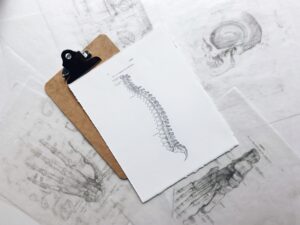A growing number of people are turning to chiropractors for a variety of health care needs. Although chiropractors are often seen as a musculoskeletal specialty, they also receive a broad medical education that qualifies them to deliver primary care for chronic pain and a variety of other conditions.
A chiropractor’s education begins in undergraduate university. Chiropractors must complete at least 90-semester units of college education before applying to chiropractic school. An increasing number of schools also require a bachelor’s degree to begin the application process.
In addition to the basic requirements, people who apply to chiropractic schools are required to have a basic, college-level science education. Each school has its own unique requirements, but most require biology, chemistry, biology, and a range of social sciences. Pre-requisites are similar to those required for medical school and other doctorate-level health care fields.
In addition, applicants to chiropractic schools are expected to have extracurricular activities that show that they are well-rounded and involved in their communities. Most chiropractic school applicants have extensive volunteer work and background that demonstrates both empathy and leadership skills.
Most applicants to chiropractic school have already completed four years of university science education. However, their training is just beginning.
Training in Chiropractic School
Although getting into chiropractic school is difficult, the education required for a Doctor of Chiropractic (DC) degree is even more challenging. Students in chiropractic school learn a variety of relevant subjects, including:
- Anatomy and physiology
- Human Biology
- Neuroanatomy, the study of the nervous system and its interactions with the rest of the body
- Root causes of musculoskeletal pain and other complaints
- Assessment of the spine
- Nutrition and other healthy lifestyle practices
- Chiropractic adjustment techniques and other musculoskeletal treatments
- Diagnosis and testing of musculoskeletal disorders
- Radiology, including reading x-rays and CT scans
- Direct patient care
In addition, many schools offer classes in business management, legal considerations, and other non-medical fields relevant to chiropractic care. Chiropractors are trained to spend a lifetime inpatient care and academic work, which requires a broad knowledge base.
The first two years of chiropractic school are spent in-classroom training. After this, chiropractors spend two years in clinical education, learning to apply the things that they learned in their didactic education. This is similar to the way medical and pharmaceutical students are taught in traditional medical education.
After they have completed their DC program, many chiropractors go on to complete additional training in pediatrics, orthopedics, or other specialty areas. At the end of this postdoctorate training, the chiropractor is awarded a certificate known as a diplomate credential. While diplomate training is not required to be a chiropractor, an increasing number of chiropractors choose to get some sort of specialty training.
Licensing and Board Certification
Most chiropractors have spent a minimum of eight years completing their education by the time they graduate with a DC. However, there are still other hoops to jump through before they can begin practicing in their field.
All chiropractors in the United States must take board exams from the National Board of Chiropractic Examiners (NBCE). These exams test their chiropractic knowledge and their ability to deliver safe and effective care. Like medical boards, these board exams require months of intensive study in addition to the many years of training needed for a doctorate degree.
In addition, many states have special requirements for chiropractors to gain a license to practice. Most chiropractors have to undergo an extensive background check. In addition, many states require specialized exams in chiropractic care, legal matters, and other topics.
Once they have completed their education, passed their board exams, and acquired a state license to practice, a chiropractor may then begin to practice in their field. However, they are still required to complete ongoing continuing education throughout their years and decades in the field.
If you are ready to see how chiropractic care can help you, contact the office of Dr. Ryan Russell at 205-637-1363 or visit our website at drryanrussell.com today. Located in Hoover, AL, Dr. Hunter offers chiropractic services to people throughout the Birmingham area. Dr. Russell offers a full spectrum of chiropractic care for the whole family, including structural correction, scoliosis treatment, general chiropractic, whiplash, and other musculoskeletal conditions.








